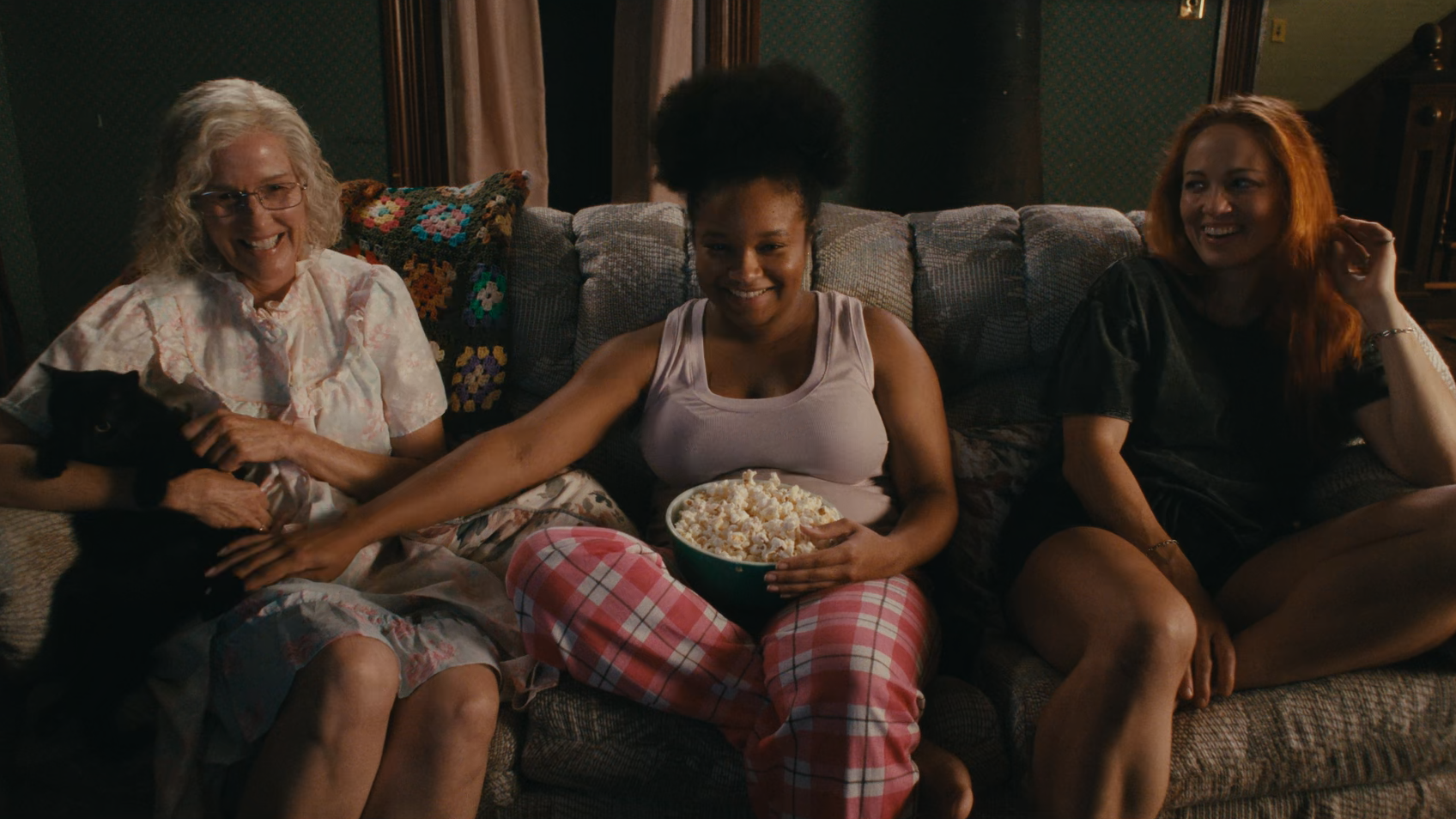“After All” sits with you for a while, maybe hours or days later. It’s a beautifully written and gorgeously shot story about three generations of ladies haunted by the spectre of domestic violence, mental illness, and substance abuse. Erika Christensen (Ellen Sharpe), Penelope Ann Miller (Verna Sharpe), and Kiara Muhammad (Haley Sharpe) are all forces to be reckoned with in their own right, showcasing a stubbornly strong streak that is only alive in the women of this family.
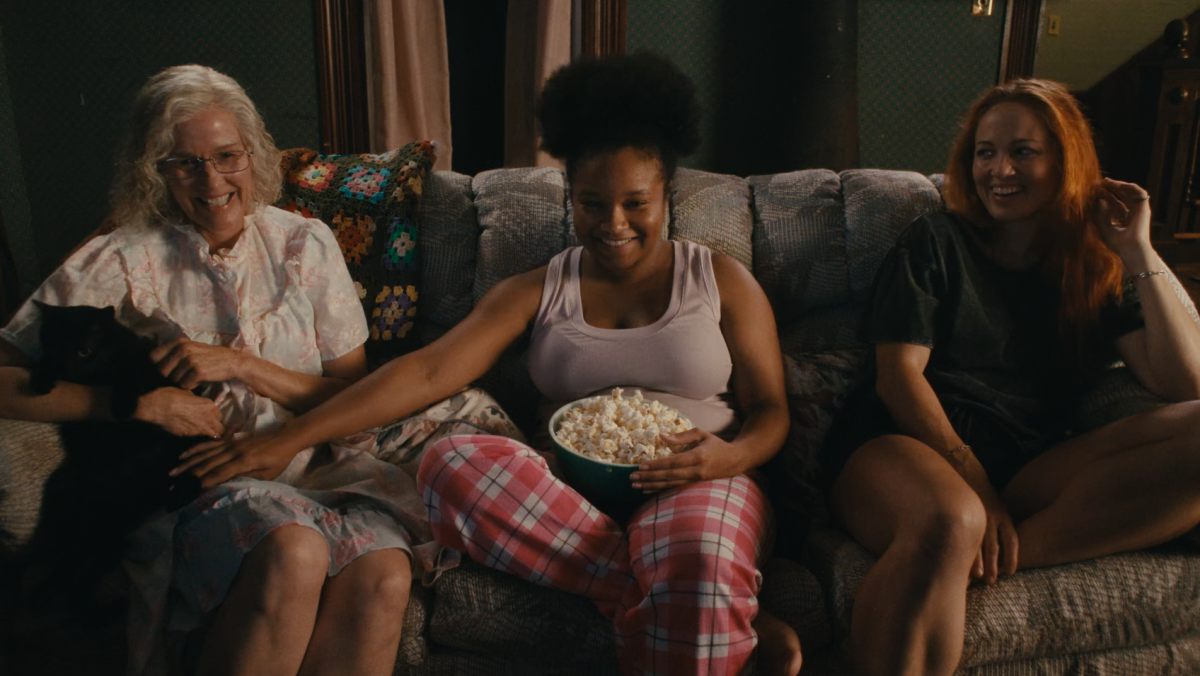
Trauma travels through time
Directed by Kerstin Karlhuber and written by Jack Bryant, this Texas-set story doesn’t shy away from the racism that seems almost inherent in these parts of America. Perhaps because it’s based on Bryant’s own family, there’s a realness in the way the Sharpe women love and care for each other, in the way they lash out and come back together.
At the start, every Sharpe lady is going through their trials alone. Ellen is an unapologetic alcoholic with an unstable lifestyle, Verna is a worried, repressed grandmother, and Haley is a shrinking violet being slowly crushed under the weight of bullies and abandonment. It takes an unfortunate stroke hitting Verna unexpectedly to pull these loose threads back together.
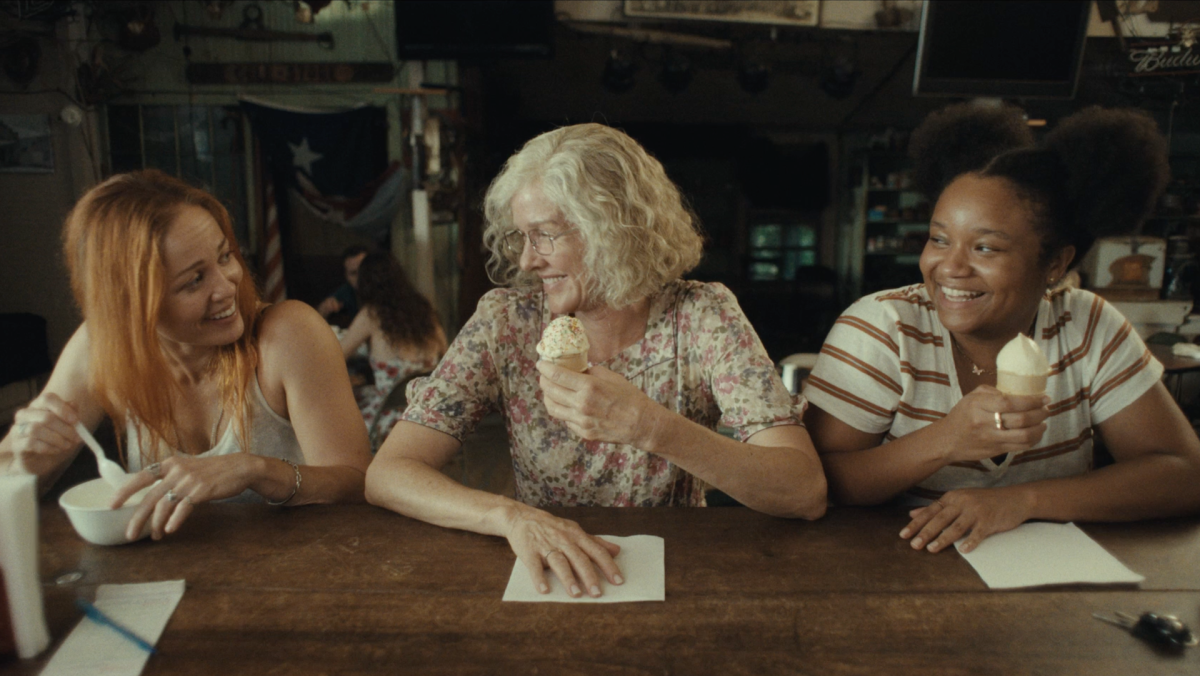
What shines the most throughout this story is the incredible use of flashbacks that gently coax the audience into the abyss that Ellen and Verna came out of, not unscathed. Ellen’s father, Walter, was a racist, abusive, frankly evil man that his son (Ellen’s brother), Lenny, said would end up running hell when he gets down there. It would’ve been so easy for Bryant to go over-the-top with Walter’s villany, but he didn’t have to because people like him actually exist. Especially down in good ole Texas.
Square peg, round hole
One of the most uncomfortable experiences a Black person can be faced with is being the only one in the room, caught in a sea full of people who don’t look like you. And worse, they stare at you, call you names, and maybe they don’t say a slur, but they might be thinking it. It’s an unsettling mix of “stranger danger” and sneaking paranoia.
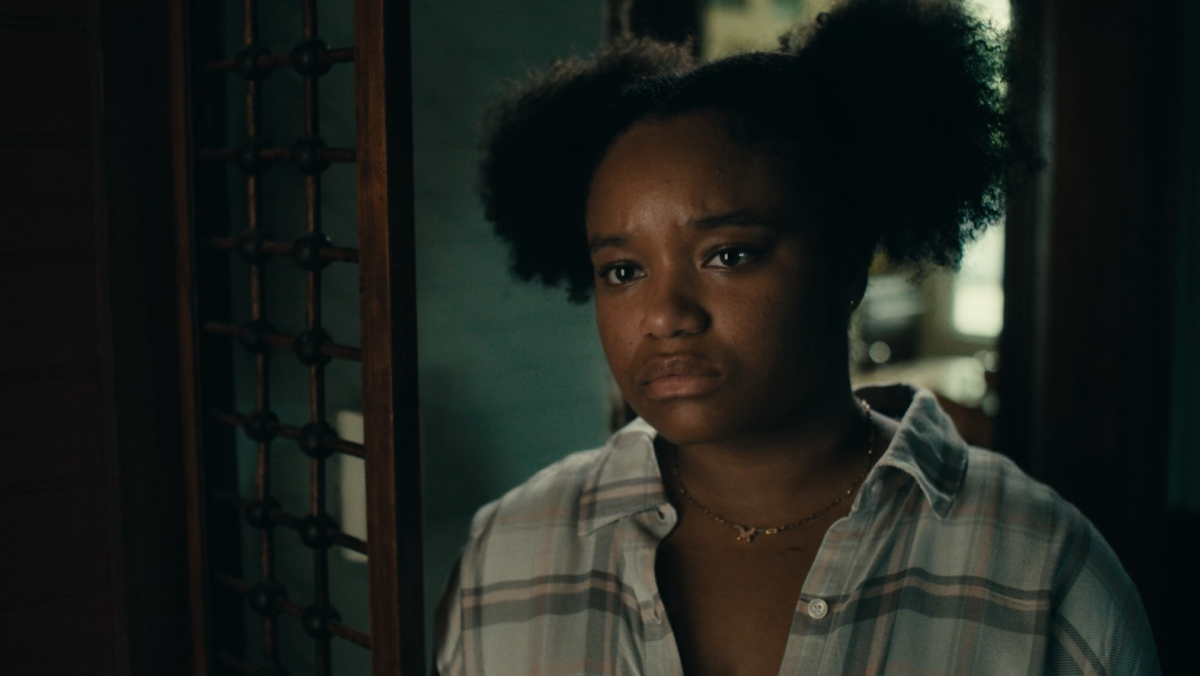
Haley’s story arc reflects this bittersweetly through the lens of an awkward teenager who has body image issues and some possibly inherited mental problems from her terrible grandfather. She’s a frustrated Black girl with a white mom who “ran off” her father (who’s never shown) and then left her behind. She loves her grandma more than anything and the moment when she finds Verna outside after her stroke was absolutely devastating. That was the end of an era where she was babied endlessly by her grandma, while her mother lived tucked away in the back of her head. Haley is resistant to the changes this episode brought on, but throughout the story you can see her grow more confident in what she wears, how she styles her hair, and, more importantly, how she stands up for herself.
Haley sticks out like a sore thumb not just in her mostly-white school, but in her mostly-white family. And by the end of the film, instead of continuing to shy away from that, she starts to embrace it, adopting a style similar to her mother; a little more punk rock, allowing herself to be angry and honest instead of mute.
Hell hath no fury
While there are plenty of cathartic scenes to choose from, one of the best involves Verna and her husband in a flashback. It’s been well-established that Walter terrorized every person he lived with. Teen Ellen’s anger at him also extended to her mother for not doing more to protect her children from his wrath. Later, Ellen showed up drunk with baby Haley at the Sharpe home, which prompts Walter to say he’ll “toss that n*gger baby” off a cliff to his wife in the kitchen. Verna immediately grabs a large knife, holds it to his throat, and threatens to kill him if he ever lays a finger on her new granddaughter. She leaves a thin cut as a token to remember her threat by. A pivotal moment that told the audience Verna finally hit her boiling point with that man. She may not have been able to protect her own children, but she was for damn sure not going to fail her grandbaby.
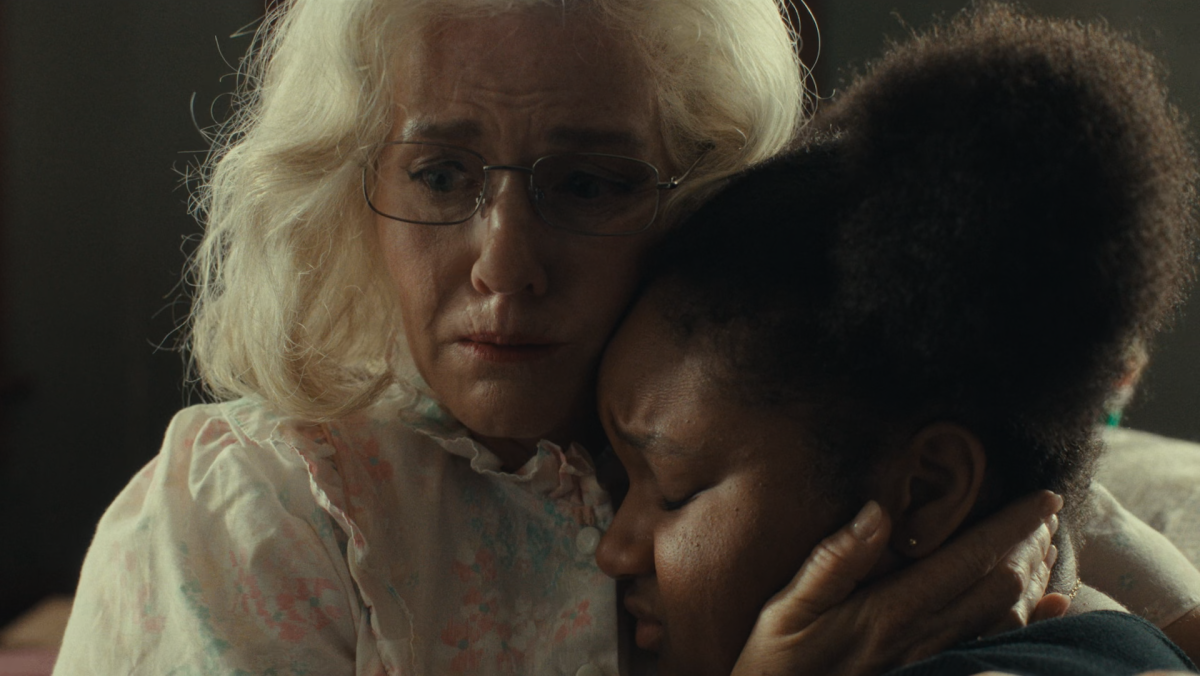
That’s just the tip of the iceberg. After her stroke, she’s a looser, less held back version of herself. One imagines this is who she would’ve allowed herself to be without Walter beating her down over the years. She blackmails the principal into not suspending Haley for fighting back against her bullies, she gives those same girls the middle finger, she’s jovial at a funeral, and she’s brutally honest in ways no one expected her to be. That honestly brings her and Ellen a lot closer, bridging a distant gap that formed years ago.
“My life is over, but yours isn’t.”
It’s Christensen’s performance, though, that really anchors the story in a place that feels so personal. Ellen’s a broken shell of a person that believes she just can’t cut it as a mother, or a partner, or a daughter. The best she can do is be a fuck-up that sometimes talks to her dead brother. But reality sets in for her. Her plan for her kid to be raised by her mom goes up in flames and her pivot is sublime to witness.
Her reconnection with her mother, her daughter, her aunt, and even her first baby’s father, Bobby (Zach Gilford), all push her back into responsibilities she’d long left behind. “My life is over, but yours isn’t,” the ghost of her brother told her in the cemetery. It’s this moment and Verna disappearing that start to help Ellen gather the pieces, so she can keep her family together. Ellen and Verna grieving together for their lost first babies was powerful and important for them to finally heal from the relentless trauma that drove them apart. It’s these little moments of motherhood that don’t always get shown, but are no less valid than giving birth or celebrating first birthdays.
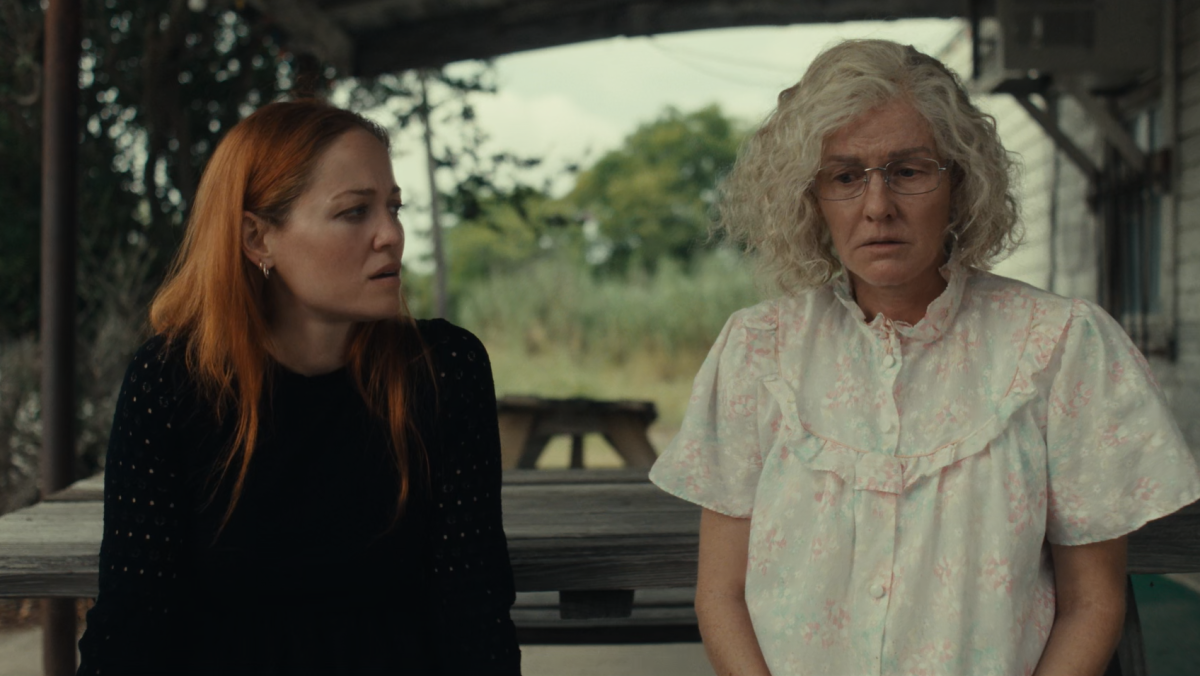
Worth the watch, and then some
“After All” being based on a personal story plus the astounding performances give you something heartfelt and real to hold on to, long after the film is over. It doesn’t try to be more than what it is: a sweet and sorrowful tale of three disparate souls finding their way back to each other. A reminder that tragedy can bring us home and make us whole again.
When Ellen returns to her hometown to care for her ailing mother and estranged teenage daughter, three generations of women struggle to reconnect and find the courage to forgive.
Directed by Kerstin Karlhuber and written by Jack Bryant. Produced by Dale Wade Davis, Christian Sosa, Tom Malloy, Joanne Zippel. Cast: Erika Christensen, Penelope Ann Miller, Kiara Muhammad, Zach Gilford, with Mike O’Malley, and David James Elliot.
Writer and editor

